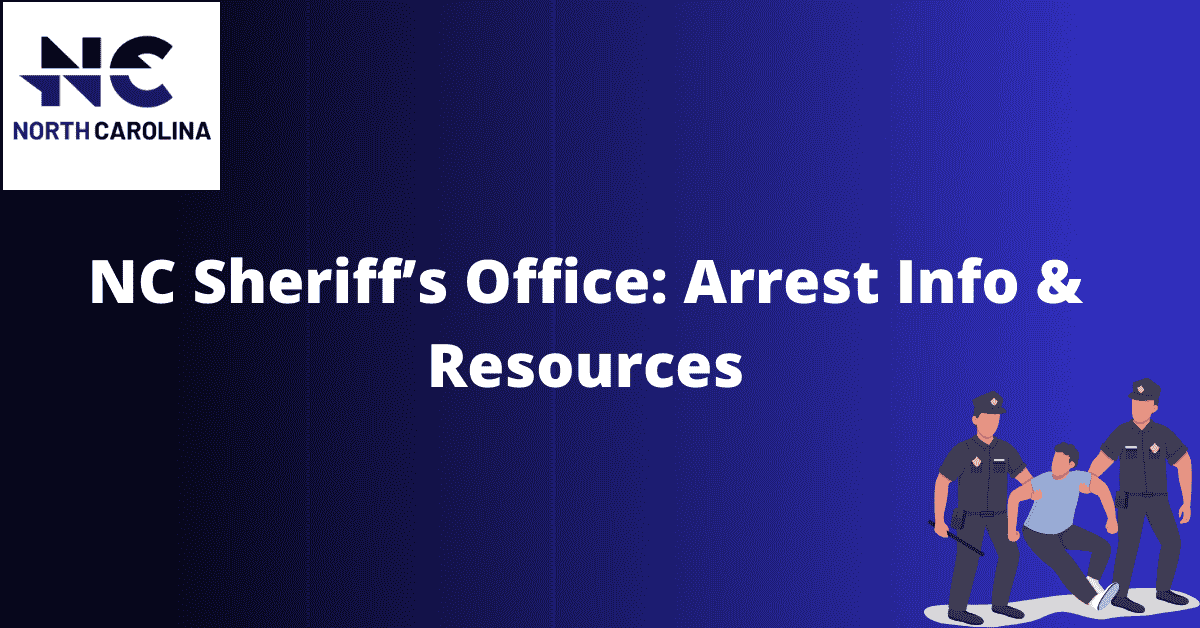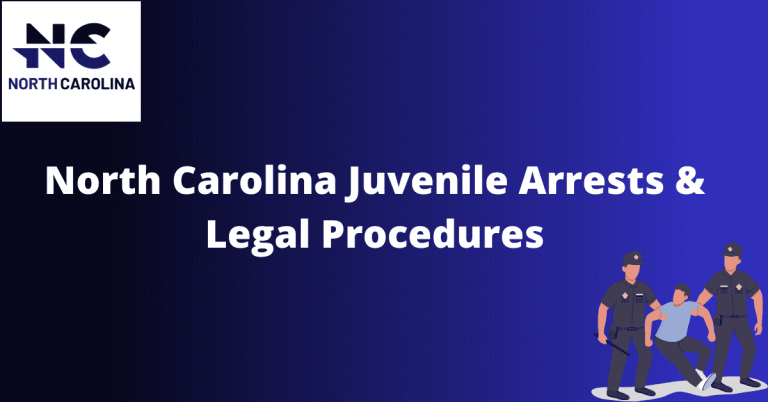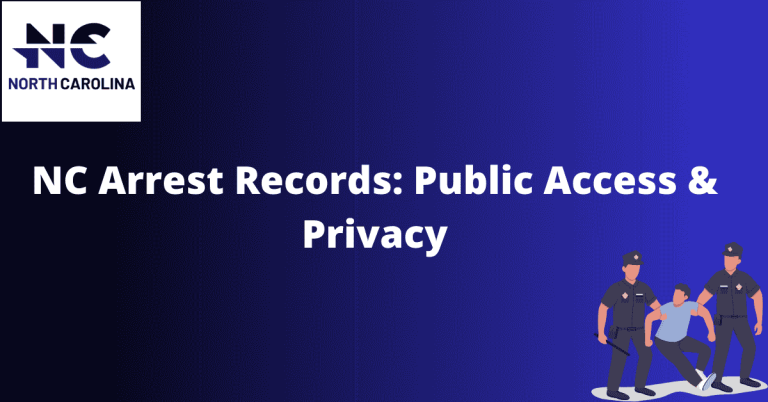NC Sheriff’s Office: Arrest Info & Resources

In the heart of North Carolina, the North Carolina Sheriff’s Office stands as a vital guardian of the state’s peace and security. This dedicated law enforcement agency plays a pivotal role in ensuring that justice prevails within the Tar Heel State. Within this comprehensive article, we will explore the critical facets of the North Carolina Sheriff’s Office, with a particular focus on arrest-related information and the valuable resources it offers to residents and visitors alike.
North Carolina Sheriff’s Office: Upholding the Law
The North Carolina Sheriff’s Office is an integral part of the state’s law enforcement machinery. Comprising elected sheriffs, deputy sheriffs, and an array of dedicated support personnel, this agency operates on a county level, serving all 100 counties within North Carolina. Its primary mission encompasses enforcing the law, maintaining order, and safeguarding the lives and property of North Carolina’s residents. One of its foremost responsibilities involves overseeing arrests and the ensuing legal processes, ensuring that justice is dispensed impartially and fairly.
Unveiling Arrest Procedures in North Carolina
Arrest Protocols: In the state of North Carolina, law enforcement officers, including sheriff’s deputies, possess the authority to make arrests when they have reasonable grounds to believe that an individual has committed a crime. Arrests can transpire at the scene of an alleged crime or as a result of a judge-issued warrant. It is of utmost importance to note that these arrests must adhere to the law, fully respecting the rights of the accused.
Booking and Detention
Following an arrest, individuals are typically transported to a local detention facility, often referred to as a county jail. At this juncture, the booking process ensues, involving the recording of personal information, fingerprints, and photographic documentation. The arrested party may then remain in custody pending a bond hearing or trial.
Legal Rights
In North Carolina, akin to the rest of the United States, individuals enjoy specific legal rights when taken into custody. These encompass the right to remain silent, the right to legal counsel, and the right to a fair trial. It is imperative for individuals facing arrest or detention to be well-acquainted with these rights and their appropriate exercise.
Accessing Resources from the North Carolina Sheriff’s Office
The North Carolina Sheriff’s Office extends a diverse array of resources to the public, aimed at enhancing safety and providing essential information. These invaluable resources encompass:
Crime Prevention Initiatives: Many North Carolina sheriff’s offices actively engage in crime prevention programs, fostering community watch programs to empower residents to protect their neighborhoods.
Sex Offender Registry: A publicly accessible registry is maintained by the sheriff’s office, enabling residents to ascertain the presence of registered sex offenders within their communities.
Concealed Carry Permits: For those interested, comprehensive guidance on applying for concealed carry permits is available, facilitating the legal carrying of firearms within the state.
Victim Support Services: The sheriff’s office often extends support and assistance to victims of crimes, providing resources such as victim advocacy and information regarding restitution.
Warrant Information: The sheriff’s office ensures that information concerning outstanding warrants is readily accessible to the public, facilitating the proactive and responsible addressing of legal matters.
Exploring these Resources in Detail
Crime Prevention Initiatives: Sheriff’s offices across North Carolina actively collaborate with their communities, advancing safety and security. Community watch programs, in particular, inspire residents to remain vigilant and report any suspicious activities, creating a sense of partnership between law enforcement and the public.
Sex Offender Registry: The sex offender registry emerges as a crucial tool, enabling residents and families to remain informed regarding registered sex offenders within their immediate surroundings. This online resource offers pivotal information to guide individuals in making informed decisions about their locales.
Concealed Carry Permits: The process of securing a concealed carry permit is well-defined and regulated. The sheriff’s office offers comprehensive guidance on eligibility requirements, application procedures, and the necessary documentation, ensuring that citizens who opt for concealed carry do so lawfully and responsibly.
Victim Support Services: Victims of crimes can seek solace and assistance through the sheriff’s office’s victim services programs. These services often encompass counselling, informational support during legal proceedings, and guidance on obtaining restitution.
Warrant Information: The sheriff’s office champions transparency by providing accessible information on outstanding warrants. This transparency facilitates individuals in addressing legal matters proactively and responsibly.
FAQS
Explore our comprehensive Frequently Asked Questions (FAQ) section to find answers to common queries about NC Arrests.
How can I ascertain if an active arrest warrant exists against me in North Carolina?
To check for active arrest warrants in North Carolina, contact your local sheriff’s office or visit their website. It’s crucial to address any legal matters promptly and in strict adherence to the law.
What steps should I take if I witness a crime in my North Carolina neighborhood?
When witnessing a crime, prioritize your safety. Immediately dial 911 to report the incident to law enforcement. Consider participating in or initiating a neighborhood watch program to prevent future criminal activities.
How do I initiate the process of acquiring a concealed carry permit in North Carolina, and what are the eligibility criteria?
To commence the application process for a concealed carry permit in North Carolina, reach out to your local sheriff’s office. Eligibility typically requires applicants to be at least 21 years old, complete a firearms safety course, and meet other state-specific prerequisites. The sheriff’s office will provide detailed information and expert guidance throughout the application procedure.






